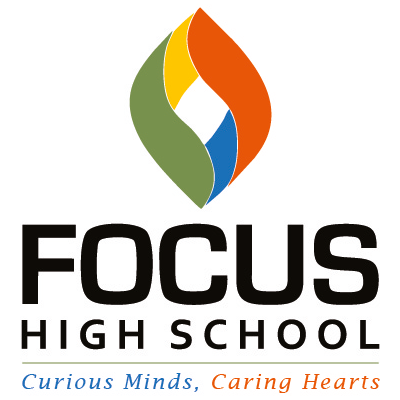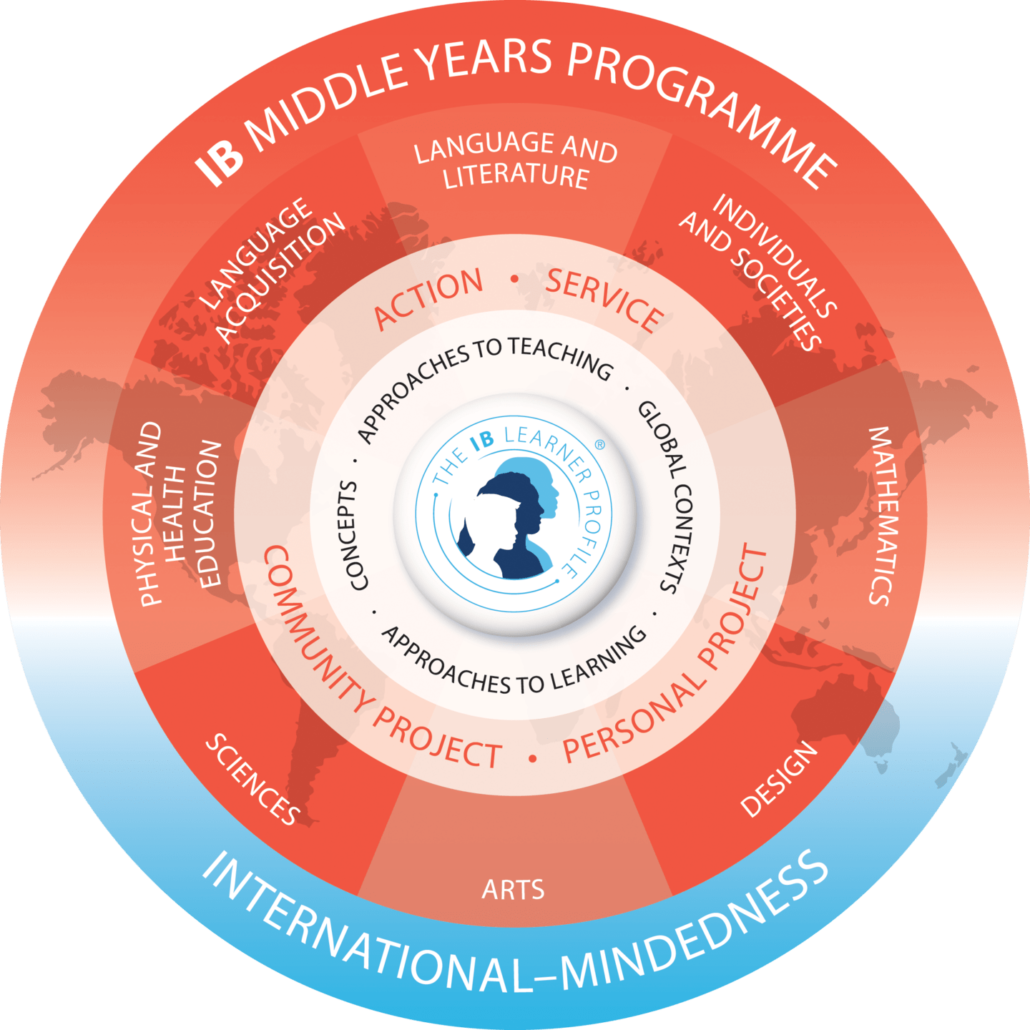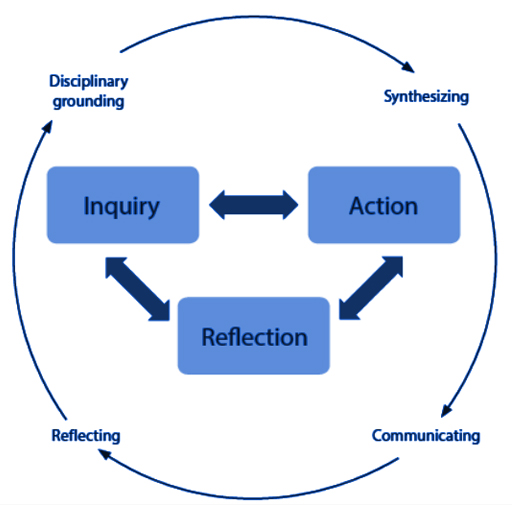IB Mission Statement
The International Baccalaureate aims to develop inquiring, knowledgeable and caring young people who help to create a better and more peaceful world through intercultural understanding and respect.
To this end the organization works with schools, governments and international organizations to develop challenging programs of international education and rigorous assessment.
These programs encourage students across the world to become active, compassionate and lifelong learners who understand that other people, with their differences, can also be right.
FHS Mission Statement
Focus High School is a community of lifelong learners that aims to enable children to excel in all aspects of life.
The school provides for students’ holistic development: encouraging them to be critical and creative thinkers; guiding them to be principled and compassionate; training them for physical health; and preparing them for higher studies and work.
Convinced that education is a means of establishing justice and mercy in the world, Focus High School ensures that its programmes are accessible to all.
IB Learner Profile
This mission culminates into student’s developing the ten IB learner profile traits:
- Open-minded
- Risk-takers
- Caring
- Principled
- Communicators
- Balanced
- Reflective
- Thinkers
- Knowledgeable
- Inquirers
Broad and balanced, conceptual and connected curriculum
To ensure that the above traits are developed, learning in IB is:
- Conceptual based learning, and
- Inquiry-based learning
Concepts are again categorized into Key concepts and Related concepts.
Key concepts are the broader ideas that we want our students to develop an understanding of. For example Communication.
Related concepts are more subject oriented and cater to develop students’ understanding of the subject. For example, ‘structure’ and ‘purpose’ are a couple of related concepts of the discipline Language and Literature.
So, the conceptual understanding that can be developed about ‘communication’ could be “Communication must be structured in order to be purposeful”.
To develop the above concept in learners, it is important that they are given examples and references. These examples/references become the context of them developing a concept. To simplify this, another example would be that people develop the concept of a tree by looking at the different trees that they see around them.
IB promotes that students not only look at local context but also the global context. Additionally, IB also has categoried the global context to further simplify student’s understanding of a concept. There are six global contexts which are listed below:
- Identities and relationships
- Orientation in time and space
- Personal and cultural expression
- Scientific and technical innovation
- Globalization and sustainability
- Fairness and development
Going back to the example of developing the concept, “Communication must be structured in order to be purposeful”, when thought through the context identities and relationships will then be about why and how structured communication builds or develops one’s identity. For example, when a person speaks Deccani Urdu, he/she is easily identified as someone who is from Hyderabad. If we teach the same concept through the context of Orientation in Time and Space, then students will learn how geography, demography and time affected the structure of language.
Inquiry-based learning: IB promotes the following cycle for teaching and learning
The nature of human learning is through inquiry and finding out (inquiry) which then is practiced (action) and to deepen the learning or understanding, reflected on. For example, let’s say a person is learning to drive. The following steps must be followed in order to achieve the same:
- Ask a person who knows driving to instruct (inquiry)
- Practise what has been instructed (action)
- Reflect on how you drive (Reflection: I didn’t use my side mirrors effectively and hence, didn’t see the oncoming bicycle. Next time, I ensure that I use all the mirrors effectively when driving)
The above learning cycle is an inherent trait of every human and hence it is the only way IB promotes teaching-learning. IB also follows the constructivist theory of learning which is based on building upon a student’s prior knowledge. Hence, knowing your student’s level and catering to it is an important aspect in IB education.
Subject Groups
IB conforms to the human processing of information. Hence, it believes in conceptual understanding since humans store information in the form of ideas and thoughts (concepts). Concepts are developed through 8 different subject disciplines which are as follows:
- Language and Literature
- Language Acquisition
- Mathematics
- Sciences
- Individuals and Societies
- Design
- Arts
- Physical and Health Education
ATL skills
IB also promotes a student becoming a self-learner. For this, certain skills need to be developed and enhanced. These skills are termed as ‘Approaches to Learning’ by the IB. They are
- Communication
- Social
- Self-management
- Thinking
- Research
These skills, when mastered, help students develop the IB learner profile traits. The above list are the 5 broad categories under which we have sub categories referred to as clusters. The clusters contain specific skill descriptors which define what skill needs to be developed in a student.
IB learning has three dimensions to it. They are:
- International mindedness
- Multilingualism
- Global engagement
IB aims to develop international minded individuals through global engagement in various topics and are multilinguals.
Assessments in IB
IB promotes authentic assessments which means assessing student’s knowledge in real-life context. This is important to understand whether a student can apply knowledge gained to real life situations.
IB assessments are criterion based. Here the criteria is defined and is mapped to the objective (learning outcomes) of respective subjects. Objectives are subject-specific learning outcomes that IB students must develop over the course of 5 years in MYP. For example, through Language Acquisition, students must develop listening, speaking, writing and reading skills which are the four objectives of the same subject.
Academic integrity is a principle in education and a choice to act in a responsible way so others can trust us. It means conducting all aspects of your academic life in a responsible and ethical manner. The IB expects students to produce genuine and authentic pieces of work, that represent their own abilities. That is, the IB wants to support “content creators”, not “content imitators”. Students should give credit where credit is due—so be honest and transparent and recognize how previous work is influencing/supporting your own work.1
IB MYP eAssessment
IB MYP eAssessment2 is a meaningful culmination of a concept-based learning experience, and must:
- be valid for the purposes for which it is intended.
- have a positive backwash effect
- be appropriate for the widest possible range of candidates
- be part of the context of a wider Middle Years IB programme
- support the IB’s wider mission and student competencies
All MYP eAssessment subjects are entered in England’s Register of Regulated Qualifications, as an offering from the IB. This official recognition by England’s government regulator assures schools, parents and students that MYP assessments meet strict quality standards.
MYP eAssessment informs a student’s next steps in their education journey, builds their ability to apply their thinking to new situations, stimulates their learning of skills, and matches the three types of performances that suit a 21st century adolescent mind.
Service learning and Personal Project
Service is a part of action in IB and every student must complete at least one service per year. Service in IB helps develop the following learning outcomes:
- Awareness: become more aware of their own strengths and areas for growth.
- NewSkills: undertake challenges that develop new skills.
- Initiative: discuss, evaluate and plan student initiated activities.
- Commitment: persevere in action.
- Collaboration: work collaboratively with others.
- Global Value: develop international-mindedness through global engagement,multilingualism and intercultural understanding.
- Ethics: consider the ethical implications of their actions.
In MYP year 5, students must complete a personal project. It is called personal project because students create a product that showcases their personal interest. This pursuit is not subject specific. ATL skills are the essence of the project since it is through the learning of these skills, that they will complete the project.
References:
- International Baccalaureate Organization. (2022, March 30). Academic Integrity. International Baccalaureate®. https://www.ibo.org/programmes/about-assessment/academic-integrity/
- Understanding eAssessment. (2020, October 19). International Baccalaureate®. https://www.ibo.org/programmes/middle-years-programme/assessment-and-exams/understanding-eassessment/



